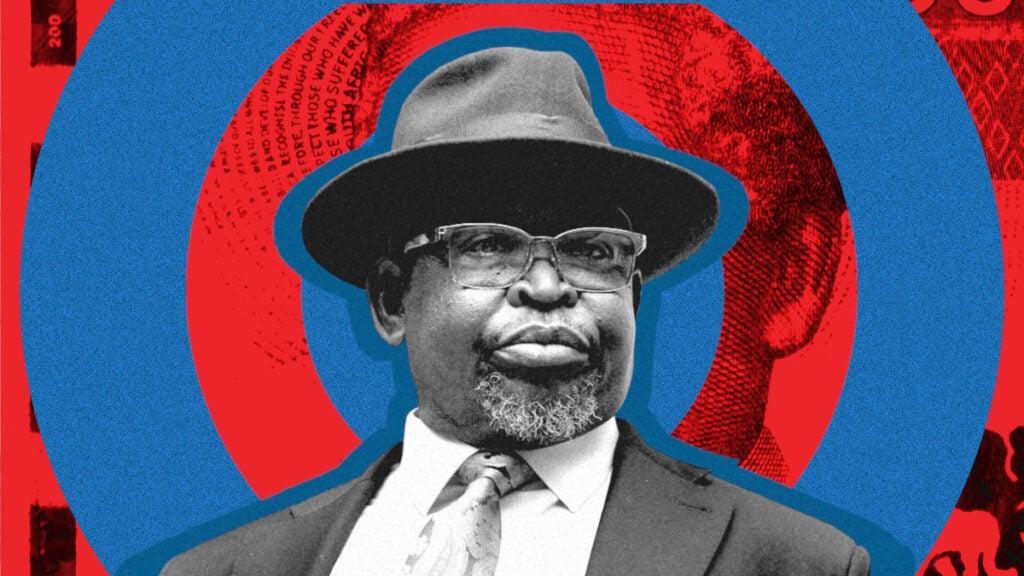Africa-Press – South-Africa. If the National Treasury moves ahead with hiking Value Added Tax (VAT) as planned in the shelved 2025 Budget, South Africa may face interest rate hikes instead of cuts as currently projected.
Investors may also be put off by the resultant higher inflation, which will slash the country’s hopes of drawing the funding it desperately needs to turn its economy around.
These are just two of the wider implications of lifting VAT to 17%, beyond the immediate impact on prices along the entire supply and value chain.
Economists from the Bureau for Economic Research (BER) have roughly estimated what the abandoned budget would have meant for South Africa and its wider implications for the economy.
“The biggest and most obvious impact would be an increase in inflation,” the group said.
Its modelling suggests that in a baseline case, headline consumer inflation (CPI) would have been about one percentage point higher relative to January (i.e., at 4.2%).
This could be higher or lower depending on various risk scenarios.
But even a 1%pt higher inflation rate could “prompt the South Africa Reserve Bank (SARB) to hike the repo rate, should it strictly follow a so-called Taylor rule,” the BER said.
The Taylor rule is a monetary policy proposed by economist John B Taylor in 1992 that helps central banks determine interest rates in response to inflation and economic activity.
It proposes that interest rates be tied to the difference between the actual and targeted inflation rates and between the desired and apparent growth in the real GDP—values that can be plugged into a relatively simple equation.
South Africa targets a 4.5% inflation rate, with the current rate at 3.2% in January. Real GDP growth is projected to be around 1.0% in 2024, but the country is targeting 3.0% over the long term.
With these values, the Taylor equation suggests that South Africa’s repo rate should be around 7.00%. As of January 2025, it is 7.50%, meaning there is room to cut.
This is broadly in line with most expectations of where interest rates are going, albeit slowly.
However, should inflation spike 1%pt due to VAT, the equation puts the ‘appropriate’ repo rate at around 8.30%, which would imply that the SARB would have to hike interest rates.
While the BER acknowledged that this is not how the Reserve Bank operates—the SARB takes a multi-pronged approach to setting the policy rate—”it does show how a potential VAT hike could work itself through the economy”.
“For example, while investment is not directly impacted by VAT, it would be hurt by a higher interest rate environment,” the BER said.
BER chief economist Lisette IJssel de Schepper
VAT hike still on the cards
The VAT hike was the biggest point of contention between parties in the Government of National Unity (GNU) that resulted in the budget being shelved.
However, Finance Minister Enoch Godongwana has made it abundantly clear that there have to be trade-offs to make the books balance.
Speaking at a post-budget cancellation media briefing that if the VAT hike is taken out of the equation, money will have to be found elsewhere to fund the government’s spending plans.
The alternatives are to cut spending or turn to debt—neither of which are easy options.
Cutting spending, especially on items that serve the vulnerable and the poor, is politically very difficult, and saddling the country with more debt will push the country towards economic disaster.
The BER said that it is a dilemma for the state.
“The books will not balance without either a cut in expenditure or a hike in tax—or, most likely, a bit of both,” it said.
Reports by News24 suggest that the debate within Cabinet over the VAT hike is still raging on, with an increase still on the cards.
The group reported that the proposed VAT hike had been reduced from two percentage points to just 0.75pp. However, the GNU parties opposed to the hikes are sticking to their guns.
The Democratic Alliance (DA), the GNU partner with the most sway outside the ANC, has refused to hike taxes to fund the budget.
It has suggested alternatives like cutting government advertising budgets, reducing travel and catering expenditure across departments and implementing a hiring freeze for all non-essential government positions for 12 months.
The party says that billions of rands can be found through making the government more efficient and less wasteful, so much so that there is no need to place the burden on taxpayers.
The GNU cabinet is running out of time to sort the budget out. The next budget is expected to be tabled on 12 March—less than two weeks away.
The BER noted that, should the budget not be tabled or passed on 12 March or before the end of the financial year, government financing continues as per the Medium Term Budget Policy Statement released in October last year.
For More News And Analysis About South-Africa Follow Africa-Press






